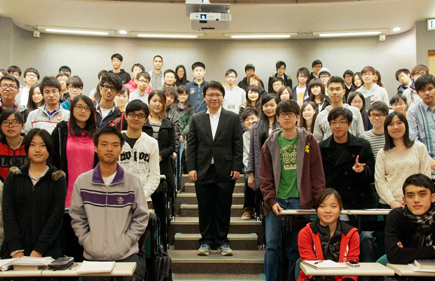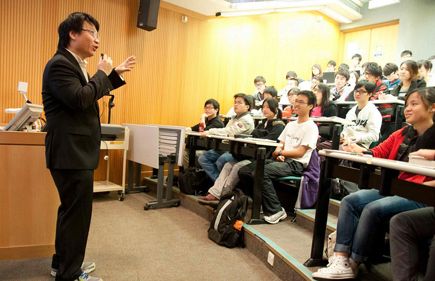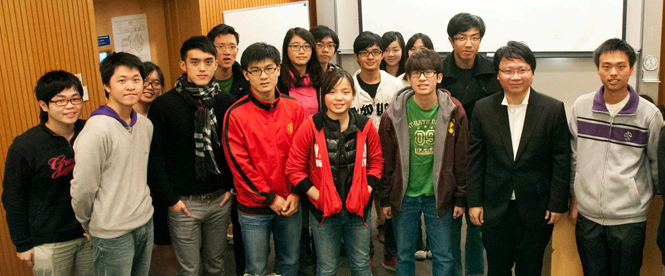Teaching Philosophy
To prepare for a lecture is like the scripting of a play, and the delivery of a lecture is the enactment of the script. In my view, the performance of a teacher in the classroom is the sum total of his/her academic temperament. Therefore, teaching, in my view, is not just a profession, but also a way of life. So long as a teacher possesses the academic attributes and stamina to attract students' attention, the lecture will be absorbing. These are the factors which motivate me to spend long hours preparing for lectures, knowing its ensuing benefits on students.
I have a fully-fledged teaching method. I am rather particular about my teaching materials; every theory, every example, and every humour is carefully thought out. I'm rather adept in capturing students' attention and stimulating their learning interest.

My Teaching Philosophy
Active Thinking: The purpose of teaching is to coach students in active thinking. John Dewey, the father of modern critical thinking as the core of general education, asserted that critical thinking is a kind of active thinking which is the antithesis to passive thinking. General education students who learn in the passive thinking mode know only to accept whatever information delivered by their teachers without going through the process of analysis. Students who think actively will consider problems carefully on their own. In order to achieve the goal of nurturing active thinking in general education, I always begin my lectures with discussions of problems, which is also a form of inspirational learning.
Dialectic: Dialectic is a philosophical methodology in finding the truth. The word "dialectic" means dialogue. But this is a special kind of dialogue which involves arguments and counterarguments. This process of dialectic is not so much to disprove the points of the opponents as to compel them to clarify and rectify their standpoints. In the end, both sides should have earned a deeper insight on the problems in question. My teaching approach to general education courses is one of dialectic in that I encourage students to express their views and build evidence around them, thereby making amendments on their understanding so that attainment of truth could be achieved through discussions.
Principle of Charity: Principle of Charity is a normative principle of communication. The principle strives to interpret at best the other person's speech as truth. My teaching approach to general education courses follows this principle thoroughly in that I always interpret a student's view as the most reasonable and the most effectual. As such, I encourage general education students to adopt this principle. Only in this context can students be motivated to express their views, hence trained to think independently so as to achieve the mutual benefits of learning and teaching.

My Teaching Techniques and Method of Organizing and Selecting Teaching Materials
Cite concrete examples first, then explain abstract theories: Theories are extracted from the concrete instances of everyday life. To drive home to general education students the importance of scholarly theories and their correlations, a teacher must, before setting forth any theories, introduce relevant examples. Only then will general education students be motivated to learn about abstract theories.
Classroom atmosphere: The way I organise my lectures is like that of a movie storyboard with a continuous flow of atmosphere. I precede each topic with an interesting example to capture general education students' attention. Every fifteen minutes or so, a stimulating yet interesting example will be put forth to illustrate the theory, resulting in an engrossing lecture.
Story: People are drawn to stories, whether they are history, biographies, or fairy tales. By expounding on a theory through the use of a story, students then need to engage both their right and left brains. This way, general education students will not feel tired so easily even though they are not majors in philosophy. Not only this--they will gain a deeper insight into the theory.
Interpretation skills: Good interpretation skills allow students to understand difficult academic concepts with ease. To use the simplest and most easily understood way to interpret academic concepts in general education, one must spend a good deal of time in preparation. Well thought out language, visual illustration, and clever analogies should be employed.

|


